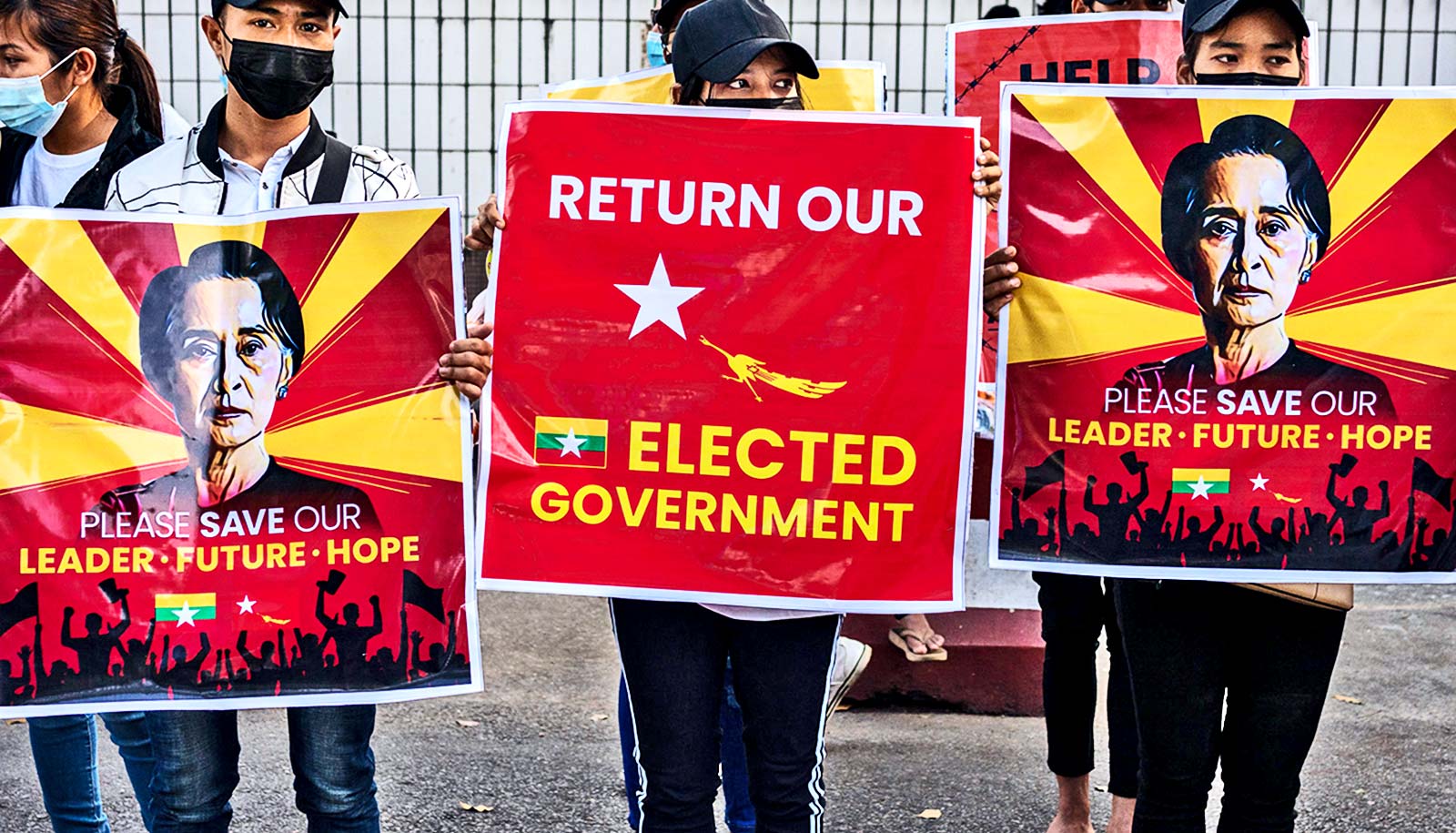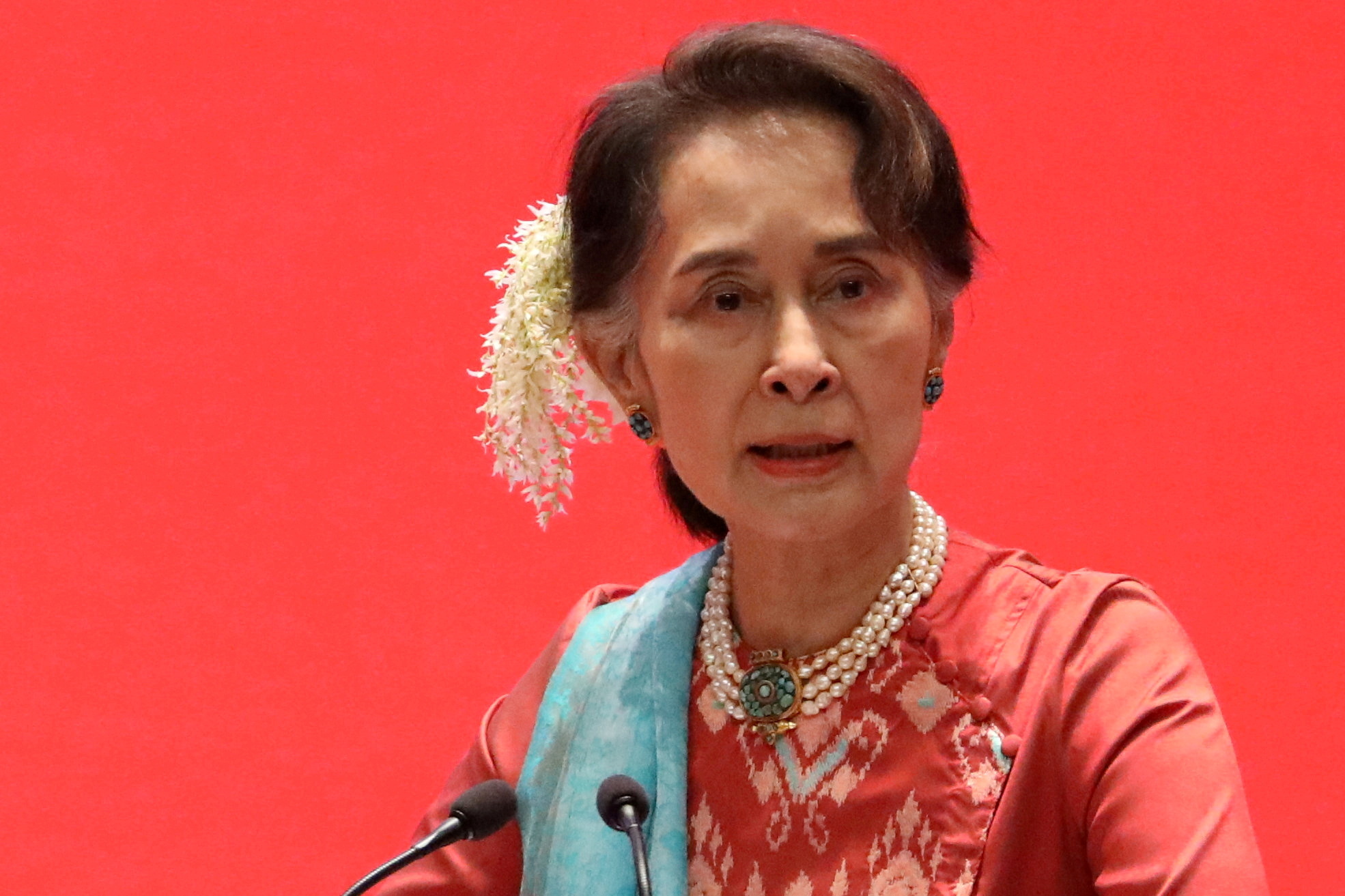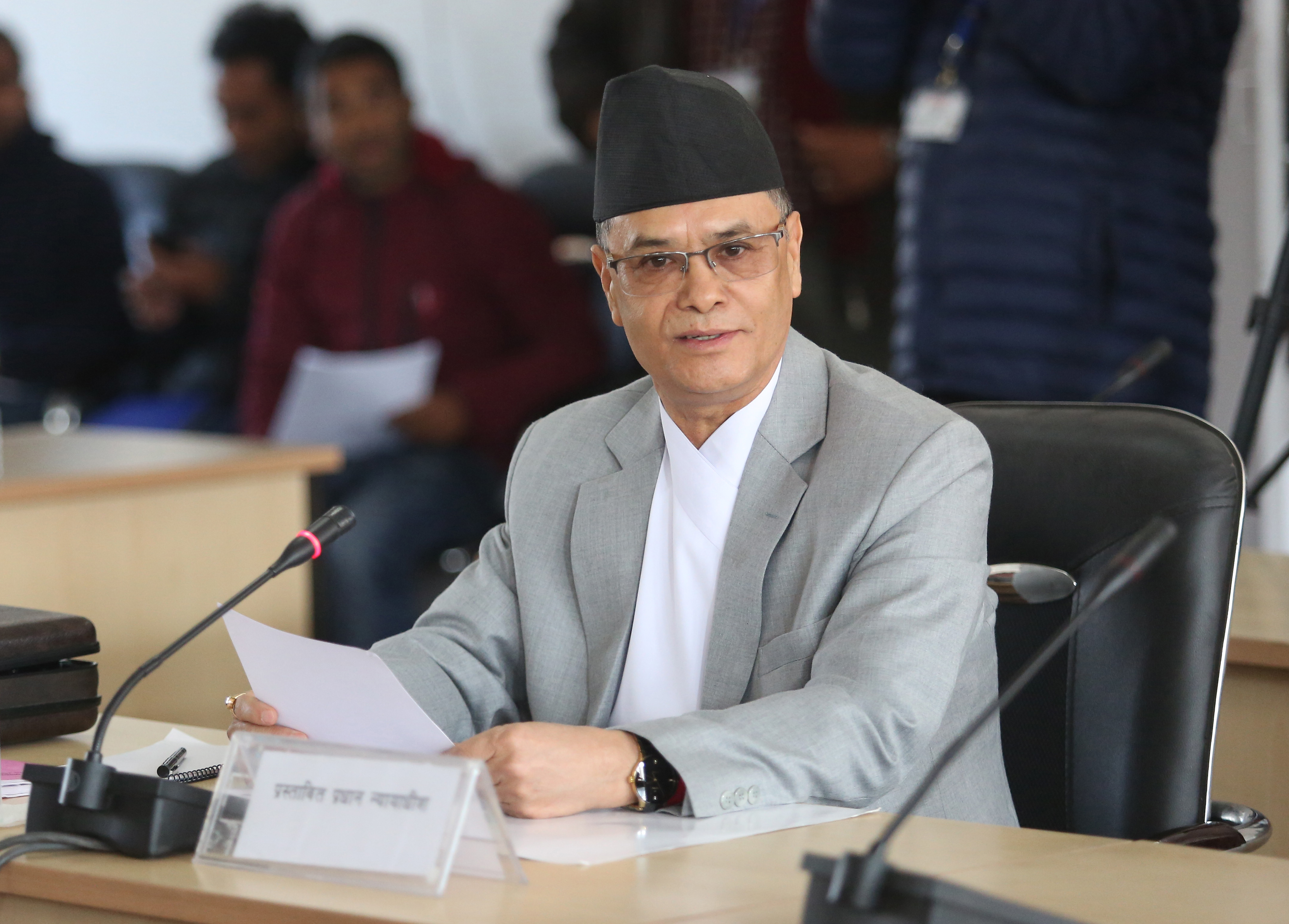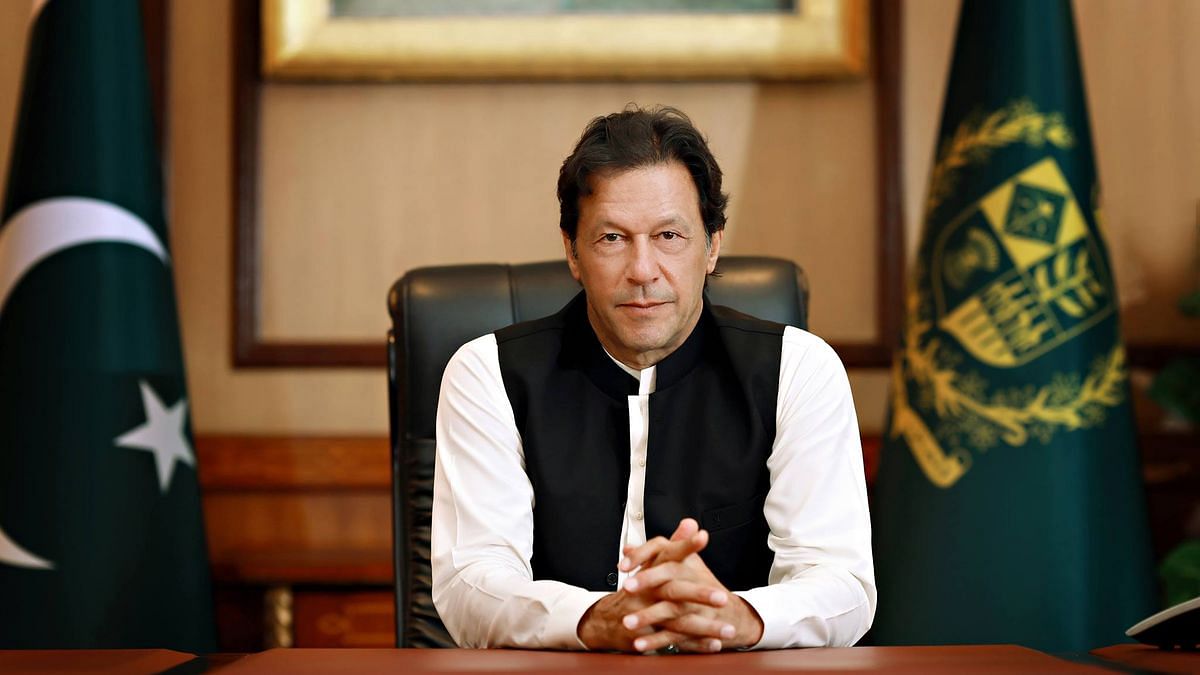List of countries with issues and instability in Asia in 2022

List of countries with issues and instability in Asia in 2022
Asia is the world’s largest and most populous continent, with most landmass concentrated in the Eastern and Northern Hemispheres. It shares the Eurasia continental landmass with Europe and the Afro-Eurasia continental landmass with Africa and Europe.
Sri Lanka, Myanmar, Pakistan, and Nepal are the four major Asian countries under turmoil.
Instability in Sri Lanka? Why doesn’t it have any funds?

Sri Lanka is experiencing a severe economic crisis, with long lineups in front of gas stations, steep hikes in the cost of essentials, and frequent outages. Even though the COVID-19 outbreak triggered a trade imbalance crisis, the Sri Lankan economy’s fundamentals have always been problematic. Debt, both domestic and international, has been a significant problem. Mahinda Rajapaksa, Gotabaya Rajapaksa‘s elder brother and Prime Minister, requested that the loan be delayed during a visit to New Delhi in February 2020, just a few months after Gotabaya Rajapaksa took office as President.
In the previous three months, India has provided $2.4 billion in aid, including a $500 million loan deferment and a $1 billion credit line to help with the delivery of essential commodities. Apart from engaging Beijing, Colombo has also requested assistance from the International Monetary Fund, abandoning its previous reluctance to do so. Steps toward economic recovery should be taken as soon as the significant commodity scarcity ends, which the government intends to happen before the Sinhala-Tamil New Year (which falls in the middle of April).
Electoral politics should not obstruct significant reforms such as administering concessions and subsidies. Mr Gotabaya Rajapaksa should use his upcoming meeting with Tamil political leaders to lay out a road map for political devolution and economic growth in the war-torn north and east. The current crisis has particularly severely impacted.
Tamil Nadu may have already begun to feel the effects of the crisis following the probable illegal entry of 16 individuals from Sri Lanka, including six women and seven children. Tamil Nadu became host to nearly three lakh refugees after the anti-Tamil pogrom of 1983. Whatever the objectives of those who illegally entered Tamil Nadu, Indian and Sri Lankan authorities must ensure that the current crisis is not exploited to boost smuggling and trafficking or inflame tensions in both countries. Instead, the situation should be used as a chance for New Delhi and Colombo to resolve the long-standing Palk Bay fisheries issue.
Right this moment
According to Reuters, Sri Lanka has requested a $1 billion credit line from India to help with crucial imports as the island nation grapples with its worst economic crisis in decades.
This comes on top of the $1 billion committed by India to help Sri Lanka, which is struggling to pay for essential imports such as food and fuel.
How bad is it exactly?
Since January 2020, the country’s foreign exchange reserves have decreased by 70%. Sri Lanka’s foreign currency reserves declined by $779 million from December 2021 to January 2022, to $2.31 billion in February.
As a result, its imports were halted, resulting in a severe shortage of several essential products. Its currency has been devalued significantly. Its efforts to obtain generous international financiers have been fruitless.
Debt of Lanka

Sri Lanka’s debt burden will become insurmountable if the country does not receive a comprehensive rescue package from an international financial organization or group.
In 2022, Sri Lanka will have to repay a $7 billion debt. One of the debts is a $1 billion foreign sovereign bond with a maturity date of July.
The International Monetary Fund (IMF) reported in early March that Sri Lanka’s state debt has climbed (in prediction) from 94 per cent of GDP in 2019 to 119 per cent of GDP in 2021.
International rating organizations have reduced Sri Lanka’s credit rating.
According to market analysts, Sri Lanka’s $51 billion sovereign debt may not be serviced this year.
Indian Assistance
India has guaranteed Sri Lanka that the credit line will be extended to cover imports of vital products such as rice, wheat, wheat flour, legumes, sugar, and pharmaceuticals.
Aside from the two $1 billion credit lines, India also provided a $400 million currency swap and a $500 million credit line for gasoline purchases earlier this year.
This is in addition to the $1.5 billion Chinese currency swap facility available in 2021.
A Day in the life of lanka
Sri Lankans are going through a difficult moment. Its banks cannot obtain dollars to finance any imports, including food, gasoline, and medications. Since January 2020, when the spread of coronavirus shell-shocked the planet into different cocoons, the Covid-19 pandemic has further exacerbated its economic troubles.
The cost of living has risen dramatically. Inflation has reached new highs in each of the last five months. In February, the inflation rate was estimated to be 17.5 per cent. Food prices increased by 25%. This price increase occurred in January when the inflation rate was over 14%.
Imports of basics were halted, forcing the government to impose greater rationing. For example, instead of one kilogramme of milk each day, a Sri Lankan can now buy only 400 grams.
Daily power outages of more than five hours are common in Sri Lankan cities. According to reports, individuals are compelled to queue for kilometre-long periods to obtain cooking gas cylinders and petrol-diesel.
Not the problem of today
A catastrophe does not strike in a flash, just as Rome was not constructed in a day. Structural issues have plagued Sri Lanka’s economy for several years. To solve the problems, successive governments adopted shortcuts.
In the last 15 years, for example, every government has issued sovereign bonds with no mechanism for repayment. It raised its foreign exchange reserve by borrowing foreign currencies rather than exporting goods and services. As a result, its foreign exchange reserves were subject to market fluctuations.
Sri Lanka’s government announced significant tax cuts in 2019, which resulted in a decrease in revenue. Its borrowing agreements with China exacerbated the situation. The majority of China’s $5 billion in loans over the last decade went to low-return projects, including port building, airport construction, and coal power plant construction.
During the Covid-19 pandemic, the country’s foreign remittances plummeted, and the country’s foreign exchange-boosting tourism business nearly collapsed. Sri Lanka’s tourism industry is one of the country’s most profitable. However, following the Easter bombings in 2017, the sector hit. The Covid-19 pandemic affected the world hard before it could recover.
Tourist inflow from Russia and Ukraine was substantial after the Covid-related restrictions were lifted, rising to around 25% by mid-February.
The conflict between Russia and Ukraine and Russian banking restrictions had an impact on Sri Lanka. India, China, the United Kingdom, and Germany, the country’s traditional tourist destinations, have not recovered to pre-Covid levels.
The Covid-19 outbreak highlighted the flaws, putting Sri Lanka in a position where the government is unsure how to get out of its financial predicament.
What you need to know about Myanmar‘s crisis

Myanmar, sometimes known as Burma, is a Southeast Asian country. Its neighbours include Thailand, Laos, Bangladesh, China, and India.
Burma was renamed Myanmar by the ruling military in 1989. Myanmar is the more formal version of the two words, which signify the same thing.
Like the United Kingdom, some countries initially refused to use the name to delegitimize the regime.
However, the term “Myanmar” has become increasingly popular, Ms Suu Kyi stated in 2016 that it didn’t matter whether the name was used.
It has approximately 54 million people, the majority of whom speak Burmese, while other languages are also spoken. Yangon (Rangoon) is the largest city, while Nay Pyi Taw is the capital.
When did the military takeover happen?
Following a landslide victory by Aung San Suu Kyi’s NLD party in a general election on 1 February 2021, the military took control.
It had backed the opposition’s demand for a re-run of the election, alleging widespread fraud.
According to the election commission, there is no evidence to back up these assertions.
What has transpired in the aftermath of the coup?
Opposition activists created the Campaign for Civil Disobedience (CDM) to help organize strikes and mass protests against the coup.
The military used live fire, water cannons, and rubber bullets to put them down.
What began as civil disobedience has now devolved into a civil conflict throughout Myanmar.
Local militias known as the People’s Defence Forces (PDFs) have attacked military convoys and assassinated government leaders.
The government has retaliated against the PDFs with violence, including the torture and murder of 40 citizens in the opposition stronghold of the Sagaing district in July 2021.
Since the military dictatorship took power, 1,503 persons have been slain, incarcerated, or detained by the military, according to the Assistance Association for Political Prisoners (AAPP).
Around 12,000 people may have died, according to Acled, a US-based organization that aggregates data from news sources and publications by human rights organizations.
Who’s in charge right now?
Min Aung Hlaing, the military commander-in-chief, has assumed authority. He had long exercised enormous political authority, effectively retaining the Tatmadaw’s (Malaysian military’s) power when the country transitioned to democracy.
He has faced international censure and penalties for his alleged role in the military’s attacks on ethnic minorities.
General Hlaing has stated that the military will build a “genuine and disciplined democracy” on behalf of the people.
Once the emergency is lifted, the military promises it will host a “free and fair” election.
What is Aung San Suu Kyi’s background?

In the 1990s, Aung San Suu Kyi rose to international prominence as a campaigner to restore democracy in Myanmar.
In Myanmar’s first openly contested election in 25 years, she led the National League for Democracy to victory.
Ms Suu Kyi was given a six-year term to break the country’s official secrets laws, possess unlicensed walkie-talkies, and release material that could “create dread or panic.” She was given a six-year sentence. She is a 76-year-old woman.
Ms Suu Kyi is on trial once more, this time for alleged corruption in purchasing a helicopter, among other things.
What about the repression of Rohingya Muslims?
Myanmar’s treatment of the Rohingya minority has tarnished Aung San Suu Kyi’s international reputation.
Following an army crackdown in 2017, many were slain, and more than 700,000 fled to Bangladesh.
In 2019, Ms Suu Kyi testified before the International Court of Justice, denying charges that the military had committed crimes.
Ms Suu Kyi was given a six-year term to break the country’s official secrets laws, possess unlicensed walkie-talkies, and release material that could “create dread or panic.” She was given a six-year sentence. She is a 76-year-old woman.
Ms Suu Kyi is on trial once more, this time for alleged corruption in purchasing a helicopter, among other things.
What about the repression of Rohingya Muslims?
Myanmar’s treatment of the Rohingya minority has tarnished Aung San Suu Kyi’s international reputation. Following an army crackdown in 2017, many were slain, and more than 700,000 fled to Bangladesh.
In 2019, Ms Suu Kyi testified before the International Court of Justice, denying charges that the military had committed crimes.
What has been the worldwide response to the coup attempt?
According to the UN, Myanmar’s humanitarian crisis is worsening with “an increase of violence and a significant rise in poverty.”
Security personnel have been accused of waging a “reign of terror,” according to US Secretary of State Antony Blinken. Sanctions have been imposed on military leaders by the United States, the United Kingdom, and the European Union.
China has endorsed calls for a return to democratic standards despite blocking a UN Security Council declaration condemning the coup.
Nepal‘s Chief Justice is facing impeachment proceedings.

Cholendra Shumsher Rana is the second Chief Justice of Nepal to undergo “impeachment” proceedings in Parliament over corruption charges in the last seven years. CJ Rana has been “suspended” pending the final disposition of the matter, and Dipak Karki, the Supreme Court’s senior-most judge, has taken over as the acting CJ.
The unexpected development came after a quick and covert operation in which 98 Members of Parliament from the Nepali Congress, Unified Socialists, and Maoist Centre signed a petition and sent it to the Parliament Secretariat in the morning.
Nepal Communist Party of Nepal-Unified Marxist Leninist, the country’s main opposition party, has set a party conference for Monday. It is expected to decide on a list of judges to be “impeached.”
Nepal’s judiciary, mainly under the authority or influence of political parties, particularly in the last 15 years, has been subjected to political attacks and harsh action by Parliament.
There is speculation that the three parties, which had been split on whether or not to endorse the 500 million Millennium Challenge Corporation Nepal compact, have suddenly decided in its favour and that CJ Rana’s departure was a price the junior coalition partners — the Unified Socialists and Maoist Centre — demanded.
Unlike in most democracies, where the presiding officer of Parliament appoints a committee to investigate charges, in Nepal, a simple notice of impeachment signed by not less than 25% of the House’s total strength automatically suspends the person holding the constitutional position.
On the other hand, Rana had not expected the quick signature drive against him because political parties had so far refused to support the Nepal Bar Association’s call to initiate proceedings. “We considered the strike was damaging the Supreme Court’s reputation and that submitting an impeachment motion would be the wisest course of action,” Law Minister Dilendra Badu said.
Pakistan‘s political turmoil has ended with the departure of Prime Minister Khan.

The Pakistani Parliament gave Imran Khan a vote of no confidence, and he was forced to resign as prime minister. On Monday, a vote on a new prime minister is expected.
This week, one of Pakistan’s twin crises was settled. The other, though, is a different story.
The country’s supreme court issued a landmark verdict on Thursday, resolving a constitutional crisis that erupted last week. The court chastised prime minister Imran Khan, a self-styled populist leader and former cricket star who is more celebrity than a statesman. According to the court, Khan had acted unconstitutionally when he dissolved Pakistan’s Parliament last week to avoid losing power in a no-confidence vote.
Given the supreme court’s mixed history as a political supporter of Khan, analysts in the country’s politics said it was both an unexpected and heartening move. The court ruled in favour of the rule of law on Thursday.
However, the underlying political turmoil that prompted the court’s unprecedented decision continues.
Khan made a bizarre claim, blaming the opposition parties’ efforts to depose him on a US-backed foreign plot. Now that Parliament has been restored, it will vote on a no-confidence motion against Khan’s government on Saturday, undoubtedly resulting in his dismissal and the holding of special elections later this year. Khan, for his part, promised to “fight” back.
The more significant political issue, on the other hand, can be traced back to Khan’s victory in the 2018 election.
Pakistan’s military has traditionally been the country’s most powerful institution, and it has regularly intervened to remove elected officials who stood in its way. Khan’s rise is inextricably linked to military sway in politics. The incumbent prime minister has accused the military of staging a soft coup by rigging the election in Khan’s favour.
According to Asfandyar Mir, a researcher at the US Institute of Peace, the election was “extremely contentious.” “There was a big doubt about the legitimacy of that democratic process,” Mir observed, “and the administration that Khan built could never escape the shadow of that election problem.”
The military’s relationship with Khan has deteriorated recently, allowing the political opposition to take action against him. Though it’s unclear what influence the military played in the highest court’s decision, experts say the court’s harshness indicates the military’s buy-in. “This is part of a bigger history of instability in Pakistan,” Madiha Afzal, a foreign policy associate at the Brookings Institution, told Vox. “Prime ministers have been driven from power because they lose the support of Pakistan’s military.”
“Even if the court was swayed by the military,” she argues, “it made the right conclusion.”
Khan’s domestic position has eroded.
The political and economic circumstances paved the way for Khan’s demise. Khan has failed to deliver on his campaign promises of reduced corruption and more economic opportunity for the underprivileged. Inflation is rising, unemployment is skyrocketing, and a multibillion-dollar IMF programme has done nothing to help things get better. Last year, the Pandora Papers, a worldwide probe into offshore money, revealed that Khan’s inner circle had shifted money abroad to evade taxes, contradicting Khan’s populist rhetoric.
Khan presided over a witch hunt against opposition parties in the name of anti-corruption. Indeed, the opposition parties are corrupt, with many of them made up of dynastic leaders and families with old money. According to Mir, their desire to depose Khan can be interpreted as a way to avoid more investigation.
Nonetheless, the government bureaucracy came to a halt due to the anti-corruption campaign. It’s also part of Khan’s overall unsuccessful strongman-style approach to governance.
What will happen next?
The administration will be dissolved after Parliament completes its no-confidence vote, which could come today. After that, the country’s electoral body will oversee a caretaker administration, which opposition leader Shehbaz Sharif would most likely lead. (Sharif is the brother of former Prime Minister Nawaz Sharif, who is currently living in exile in the United Kingdom due to corruption allegations.) Khan will almost certainly lose in the upcoming election.
Even the specifics of those elections, however, are debatable. Khan had requested that the electoral commission pick a date within the next 90 days; opposition MPs warned NPR that reforms are required before the next election, or the military will “rig” the next poll.
Things are even less evident in the long run. In Pakistan, civil society leaders agree that the supreme court’s decision favours constitutionalism. However, it might also be a vehicle for the judiciary’s capacity to intervene in politics to be expanded further.
The significant lessons won’t be appreciated entirely until the court reveals the full wording of its judgement in the next month or two, according to Kureshi, an expert on Pakistani courts and how they have increasingly become the arbitrator of politics in the nation.
That particular order has the potential to set other judicial precedents and perhaps paint the opponents in a negative light.
After the exhilaration of putting an end to Khan’s brazen unlawful manoeuvre, the court’s decision could reveal how it views itself, particularly its supervisory position over the Parliament and prime minister.
“Whether it’s the military in the past or the court more recently, the elected institutions are deeply restricted by the tutelage of unduly empowered unelected institutions,” Kureshi added. “Judgments like this offer them the chance to strengthen and enhance that position.”




